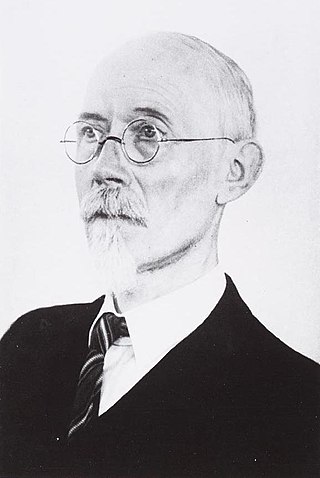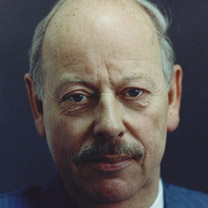Related Research Articles

The Easter Rising, also known as the Easter Rebellion, was an armed insurrection in Ireland during Easter Week in April 1916. The Rising was launched by Irish republicans against British rule in Ireland with the aim of establishing an independent Irish Republic while the United Kingdom was fighting the First World War. It was the most significant uprising in Ireland since the rebellion of 1798 and the first armed conflict of the Irish revolutionary period. Sixteen of the Rising's leaders were executed starting in May 1916. The nature of the executions, and subsequent political developments, ultimately contributed to an increase in popular support for Irish independence.

Kilmainham Gaol is a former prison in Kilmainham, Dublin. It is now a museum run by the Office of Public Works, an agency of the Government of Ireland. Many Irish revolutionaries, including the leaders of the 1916 Easter Rising, were imprisoned and executed in the prison by the orders of the UK Government.

Antonie "Anton" Pannekoek was a Dutch astronomer, historian, philosopher, Marxist theorist, and socialist revolutionary. He was one of the main theorists of council communism.

Joseph Mary Plunkett was an Irish republican, poet and journalist. As a leader of the 1916 Easter Rising, he was one of the seven signatories to the Proclamation of the Irish Republic. Plunkett married Grace Gifford in 1916, seven hours before his execution.

The Gaelic revival was the late-nineteenth-century national revival of interest in the Irish language and Irish Gaelic culture. Irish had diminished as a spoken tongue, remaining the main daily language only in isolated rural areas, with English having become the dominant language in the majority of Ireland.

Thomas Stanislaus MacDonagh was an Irish political activist, poet, playwright, educationalist and revolutionary leader. He was one of the seven leaders of the Easter Rising of 1916, a signatory of the Proclamation of the Irish Republic and Commandant of the 2nd Battalion, Dublin Brigade of the Irish Volunteers, which fought in Jacob's biscuit factory. He was executed for his part in the Rising at the age of thirty-eight.

Pieter Hendrik "Peter" Kooijmans was a Dutch politician, jurist, and diplomat. He was a member of the defunct Anti-Revolutionary Party (ARP), which later merged into the Christian Democratic Appeal (CDA) party. From 1993 to 1994, he served as Foreign Minister of the Netherlands, succeeding Hans van den Broek. In 1995, he returned to his former position as Professor of Public International Law at the University of Leiden, serving until his appointment to the International Court of Justice. He was granted the honorary title of Minister of State on 13 July 2007.
Pearse is a surname. Notable people with the name include:

Giles Scott-Smith is a Dutch-British academic. He is a professor of transnational relations and new diplomatic history at Leiden University and serves as the dean of Leiden University College The Hague.

Jaap Kunst was a Dutch musicologist. He is credited with coining the term "ethnomusicology" as a more accurate name for the field then known as comparative musicology. Kunst studied the folk music of the Netherlands and of Indonesia. His published work totals more than 70 texts.
Pádraig or Pádraic, also Pádhraig or Pádhraic, are Irish male given names deriving from the Latin Patricius, meaning "of the patrician class", introduced via the name of Saint Patrick. The name is often anglicised as its English language equivalent Patrick or phonetically, e.g. Pauric.
Peter Schrijver is a Dutch linguist. He is a professor of Celtic languages at Utrecht University and a researcher of ancient Indo-European linguistics. He worked previously at Leiden University and the Ludwig Maximilian University of Munich.

Roelof Paul Citroen was a German-born Dutch artist, art educator and co-founder of the New Art Academy in Amsterdam. Among his best-known works are the photo-montage Metropolis and the 1949 Dutch postage stamps.

Leonard Blussé van Oud Alblas is a Dutch historian concerned with the field of Asian-European relations. Blussé has authored, co-authored or edited more than twenty books since 2000. He is the founder of the journal Itinerario and initiated the Crayenborgh College guest lecture series which was the first honours class in a Dutch University. He was elected a member of Academia Europaea in 2010.

Patrick Henry Pearse was an Irish teacher, barrister, poet, writer, nationalist, republican political activist and revolutionary who was one of the leaders of the Easter Rising in 1916. Following his execution along with fifteen others, Pearse came to be seen by many as the embodiment of the rebellion.
Patrick Edward de Josselin de Jong was a professor of cultural anthropology at the University of Leiden for over 30 years, and department chair from 1957 through 1987. His research specialization was on the Minangkabau in West Sumatra.
Richard Thomas Griffiths is an English-Dutch historian who was professor of economic and social history at Leiden University.

Joseph Theodoor "Joep" Leerssen is a Dutch comparatist and cultural historian. He is professor of European studies at the University of Amsterdam, where he also holds a Royal Netherlands Academy Research Professorship. He was awarded the Spinozapremie in 2008.

Willem Thomas (Tom) Eijsbouts is a Dutch professor of European constitutional law and its history at the University of Amsterdam and emeritus professor of European law at Leiden University.

Peter Lein Geschiere is a Dutch anthropologist, Africanist and Emeritus Professor of Anthropology at the University of Amsterdam. He studied at the Free University of Amsterdam obtaining a MA in history in 1967, a MA in anthropology in 1969, and a PhD in anthropology in 1978. Geschiere performed field work in Tunisia, Zaire, French- and English-speaking Cameroon and Senegal (1968-2001), and was a lecturer (1969-1978) and senior lecturer (1978-1988) at the Free University of Amsterdam. Then he held a professorship in Non-Western History at Erasmus University Rotterdam (1985-1988) and was a researcher at the African Studies Centre Leiden (1986-1988). At Leiden University Geschiere worked as Professor of Anthropology and Sociology of Sub-Saharan Africa (1988-2002). From 2000 onward he was Professor of Anthropology at the University of Amsterdam. Geschiere specialised on Cameroon and the comparative study of processes of change in Africa. In 2002 he won the Distinguished Africanist Award from the US-based African Studies Association.
References
- 1 2 J. Augusteijn, 1960 - at the UvA Album Academicum
- 1 2 Faculty page at Leiden University
- ↑ Patrick Pearse:proto-fascist eccentric or mainstream European thinker? at historyireland.com